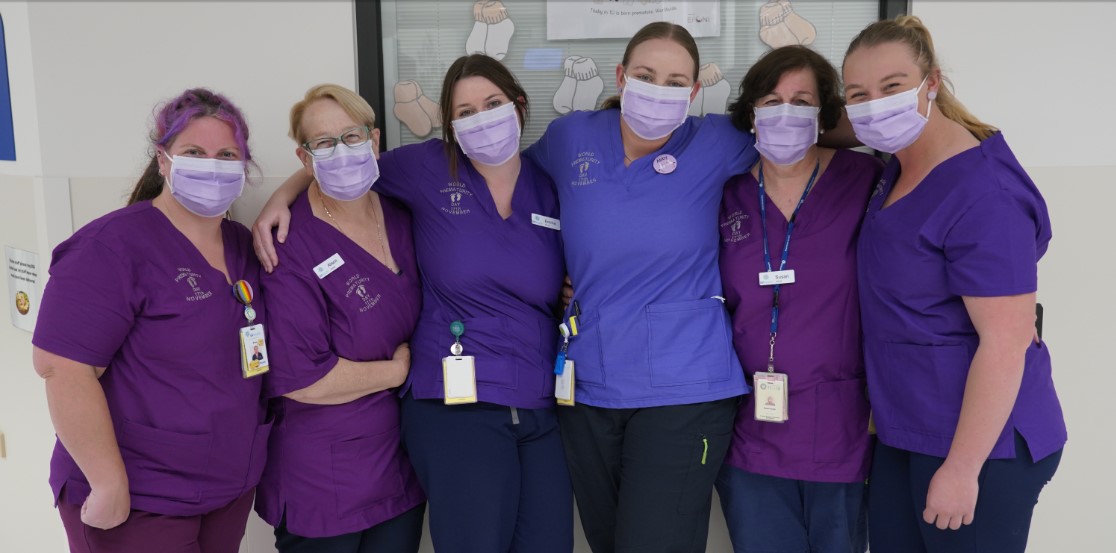November 17 marked World Prematurity Day, raising awareness of premature birth and the challenges the parents and their babies face, It can affect any family and any background, with one in ten children born premature, or before 37 weeks gestation, in Australia each year.
When Kirsty Hommes went into spontaneous labour with baby Lacey at 33 weeks pregnant, she had already been prepared for the possibility of a premature baby.
Due to pregnancy complications, she was having weekly scans to ensure the baby was growing properly, with doctors set to induce when Lacey stopped growing.
“We knew she would be early, but not quite how early. I’d gone into labour and it was quite a quick birth, so she was born a few hours later,” Kirsty said.
At seven weeks premature and weighing just 1.846kg, Lacey’s lungs were underdeveloped and she needed breathing assistance from a CPAP machine and some time under a UV lamp to treat jaundice; she also needed a nasogastric tube later on to receive nutrition.
“After she came out she was only on glucose and hadn’t pooed in the first 48 hours, so Lace was transferred down to the Royal Children’s Hospital in Melbourne for a few days,” Kirsty said.
Lacey was transferred back for a further three weeks at GV Health’s special care nursery, gaining weight and learning to nurse from the bottle and breast; she was eventually discharged at one month old and 2.296kg.
“As a first-time mum I had no idea about any of this side of having a child in hospital or dealing with a premature baby,” Kirsty said.
“One thing I did find hard through the whole process was feeling like Lacey was my child, in the first three days I only had two hours of skin-to-skin contact.”
“When my MGP midwife Michelle would come in she would reinforce me asking for more skin-to-skin, so I got more confident to handle Lacey with all her cords, and the more cuddles I got the more of a bond I formed with her.”
GV Health special care nursery nurse Emma Sutton said skin-to-skin contact, also known as kangaroo care, is an amazing tool for premature babies and their parents.
“We place the baby on mum or dad’s bare chest so they can listen to the heartbeat … it’s an amazing tool that can be used to help babies feel more comfortable and closer,” Emma said, adding it’s an important tool to help parents bond with their new baby.
“It has a magical effect on premature babies; we love using it when they’re on respiratory assistance because it can help them to stabilise themselves.”
Emma said skin-to-skin care was this year’s World Prematurity Day theme once again, due to separations during the COVID-19 pandemic.
Baby Lacey is now eight months old and hitting her milestones, thanks to the care she received.
“The nurses at GV Health were phenomenal for me, the care they gave Lace was second to none and I couldn’t ask for anything better,” Kirsty said.
She urged other parents to trust in the process for their premature baby, even if it was hard or gets scary.
“I’d say just put your trust in the nurses and doctors there, because they really are doing the best for your bub.
“It’s hard and you might not know any different, but you just sort of roll with it.”
The GV Health special care nursery can take babies over 32 weeks and 1500g, as well as those on CPAP or low-flow oxygen; they can also stabilise babies out of this range and send them to Melbourne. They are looked after in a caring environment that’s close to home, so parents and their families can access local support.
“You want to try and get mum and baby together, which is obviously hard with premature babies, but that time’s still really valuable,” she said.
